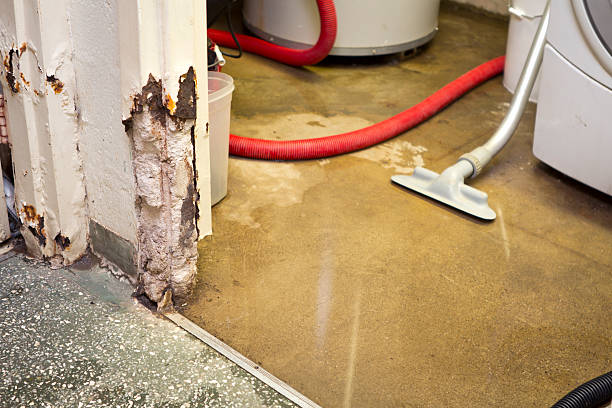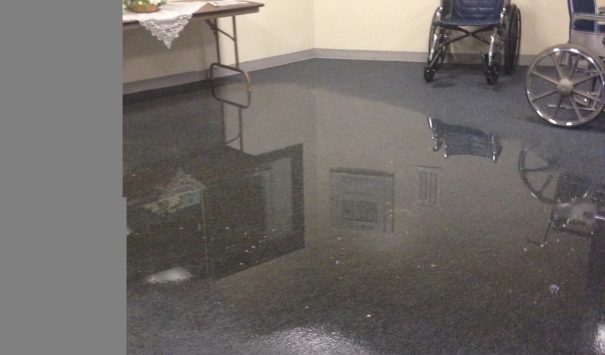Just how do you really feel in regards to Maintaining & Draining a Water Heater?

Whether it lies in the cellar or a separate room, broken hot water heater can cause tension. A conventional unit holds 80 gallons, so an overnight leak will certainly cause a flooding. This causes major residential or commercial property damage with soaked wall surfaces as well as floors. Besides, having no warm water supply is additionally troublesome. If you are taking care of these problems, take note of the following:
Call the Plumber
After doing the very first two security actions, you have to call your plumber to come right away to take care of a fractured water heating unit. There are normally indicators that your aging water heating unit has debris buildup in the inside.
Rather, as quickly as you spot these indicators, have actually a specialist come to examine your water heating system storage tank. Generally, water heating systems have a life expectancy of about 8 to 12 years.
Cut Off the Cold Water Supply
Cut off the containers tap water supply from the resource. This goes from your major water line right into the container. When your container is in good condition, the cold water stops filling up when the tank is complete. Given that it is dripping, the water will certainly proceed to stream. Close the shutoff located on top of the heating system. Revolve this clockwise to close it off. If you can not find it or reach it, you need to shut off that major water supply line outside your building.
Turn Off Power Source
Prior to calling the plumber, shut down a gas water heater by turning the temperature dial. This is generally located on top of the thermostat. If you have a design that works on electrical power, switch off the breaker. This will prevent electrocution, especially if there is a leakage as water is a conductor. Typically, the heating element shuts down when the water hits a specific temperature. Yet with a broken tank, it may malfunction. Sufficing off guarantees you remain safe.
Tidy up Building
After calling the plumber, record damage by bearing in mind as well as images so you can assert your property owner's insurance policy. From there, start the instant cleaning. Get any kind of vital items to stop more saturating. Eliminate any kind of standing water to protect against mold as well as mildew development. If you have a completely submersible water pump, use that to drain the water. Or else, the standard pail approach will certainly likewise function. Attempt to mop out whatever, consisting of walls and walls. Keep them running to maintain air flowing if you have an electric follower as well as dehumidifier. This will assist discourage mold growth.
Bear in mind, if you notice any type of concerns with your water heater, call the pros today. You can not take this trouble gently because a malfunctioning thermostat can elevate water temperature to a dangerously high level, causing unexpected burns. A broken heater pressure relief valve can likewise trigger an explosion. For finest outcomes, get an annual check so your device obtains evaluated, cleansed, drained, as well as refilled, ensuring optimal performance.
After doing the very first 2 safety and security steps, you must call your plumber to come right away to deal with a burst water heater. Instead, as quickly as you detect these indications, have actually a professional come to check your water heating system tank. Before calling the plumber, closed off a gas water heating system by transforming the temperature dial. If you have a submersible water pump, utilize that to drain pipes the water. Bear in mind, if you notice any concerns with your water heating system, call the pros right away.
Common Water Heater Issues and What You Should Do
What Type of Water Heater Do You Have?
Before we begin it’s first important that you identify the type of water heater you have on your property. There are two main types of water heaters out there: conventional and high efficiency.
Both of these types of products typically use either gas or electricity to heat power. There are also solar water heaters that use a thermal collector on the roof or yard to heat the water.
While these models are not as common, they can cut heating costs in half. In this article, we will focus on conventional and high efficiency.
Not Enough Hot Water
This problem is common if you live in an apartment or a house with a lot of people. Too many people use the hot water supply in the tank and the machine struggles to produce more in a timely fashion.
There’s a variety of solutions to this problem, but an easy method is simply to adjust the temperature dial on your heater and wait thirty minutes.
If you have an electrical water heater, then a power surge caused by the device may cause the circuits to trip.
You should contact an electrician quickly if this issue keeps happening — it means wiring issues are causing the machine to draw more power than it needs. You may also want to try draining your water heater.
The process of draining removes the hard water sediments that cause your machine to run less efficiently. If you want a full walk-through of how to drain water your water heater tank, then make sure to read our article before you begin.
If none of these solutions fix the problem, then the issue likely lies in a malfunction component — likely a pressure relief valve or heating element.
Changing Water Temperatures
Often it’s a joke that some showers have two temperatures: scolding hot and ice cold. Unfortunately, this common feature can be a symptom of a bigger problem.
If you notice this temperature change when you shower or do the dishes, then you should check the thermostat on the side of your water heater. First, make sure it’s set to your desired temperature.
If it still exhibits drastic temperature changes, then you may need to replace the thermostat or the heating unit inside the product. The problem may also lie in the size of the product. Remember that tanks should hold roughly 20 gallons of water per person living in the house.
A Leak in the Water Heater
A water heater leak can cause serious water damage to the floor and electrical components near the device. Remember that you should always turn off the gas or electricity and let the device cool down before inspecting for a problem.
You may be able to fix the leak by tightening screw and pipe connections as these are common causes of minor leaks. However, if you notice a substantial leak at the base of the water heater, then you should contact a technician to inspect and replace it.
Rumbling Sounds
Rumbling sounds are a sign of a serious water heater issue. Unusual sounds may come from burning sediments or malfunction heating components. If you think you hear your heater boiling, then you should turn it off immediately.
This symptom is a sign of building pressure in your tank which could cause it to explode. You can likely solve this problem by draining your tank and clearing out any sediments. However, if the problem persists you may want to call a professional.
Rusty or Smelly Water
If your water smells then there is likely rust or bacteria in your water tank. These problems can cause orange discoloration and a smell like rotten eggs. However, you should first make sure that your tank is the issue and not the water source itself.
Run cold water and see if the smell persists. If the smell only comes from hot water, then the problem is the water heater. If not, then it’s the water source. If the problem comes from your tank, then it’s likely a malfunctioning anode rod.
An anode rod is responsible for cleaning any bacteria from the tank, so this is the most likely symptom. Unfortunately, changing an anode rod requires extensive knowledge of the system. As such, you will likely need the help of a professional.
Poor Water Flow
Changes in the water pressure that comes out of your shower or sink is likely a sign of sediment buildup at the bottom. Follow our previous advice — drain the tank and flush out any of the sediments.
If the problem persists, then you’ll need to check the pipes around your device. Hire a professional plumber to clean or replace the pipes around the water heater.
https://happyhiller.com/blog/common-water-heater-issues-and-what-you-should-do/

We were guided to that report about Water Heater Repair through an acquaintance on a different web address. Don't hesitate to set aside a second to distribute this post if you enjoyed it. I love reading our article about What Do You Do When Your Water Heater Bursts?.
No more leaks, call us!